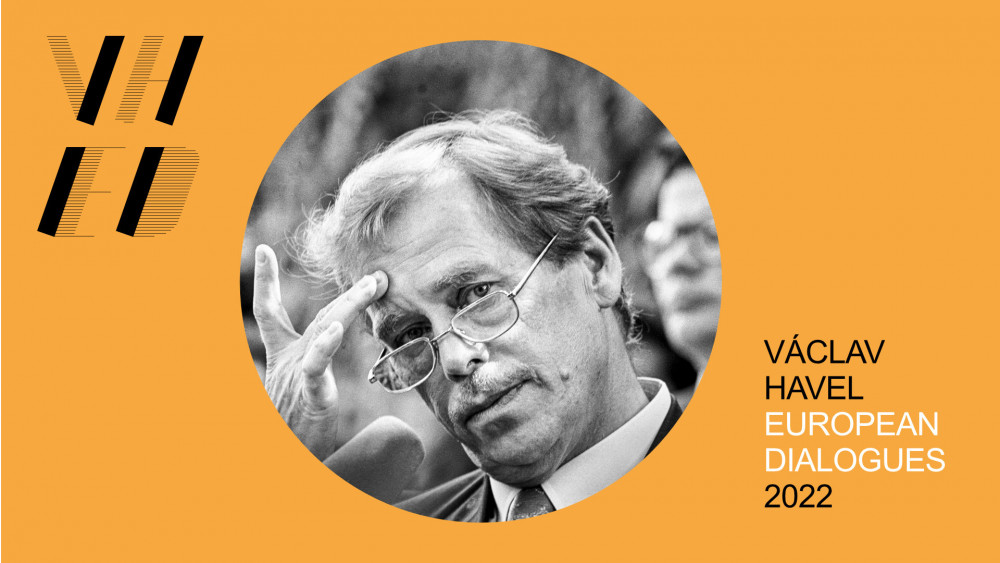The Czech Centre, together with the Centre of Law and Society and UCL, has organised panel discussion focusing on the issues of peace, democracy, environmental justice and the crisis of our civilisation. Václav Havel called for 'living in truth' and 'an existential revolution' as a response to the crisis of our civilisation. The Ukraine War has been the most recent evidence of this crisis. Another evidence is the climate change and growing state of environmental emergency which confront us with urgent questions of sustainable development, environmental justice, rights and inequalities as well as calls for global political actions to tackle grave risks.
Session I: From Normalization to Loss of Norms: Václav Havel and the Forms of Democratic Backsliding
The decades following the Soviet invasion of Czechoslovakia in August 1968 were dubbed the period of ‘Normalization’: a chilling term intended to designate a return to the efficient social controls that had been the norm across the Soviet Bloc prior to the democratizing and liberalizing movement that culminated in the Prague Spring in mid-1968. ‘Normalization’, in fact, was not normal at all. Rather it shut down social, political, and economic activities that showed any independence or strayed too far from strict Party line. The decade leading up to the Russian invasion of Ukraine in February 2022 does not yet have a commonly accepted label, but surely one of the prime political characteristics—almost uniformly across the globe—has been the loss of political norms and the rise of a politics of impudence, where nothing matters beyond the accumulation of power and resources for elite social groups. Havel’s contrast between living in truth and politics of normalisation informs authoritarian and democratic regimes and destructive ‘new normalities’ are typical of the Brexit, Trump and Putin with his disinformation wars preceding the aggressive war against Ukraine. This panel will discuss similarities and differences in these related social dynamics—imposition of restrictive norms, and the elimination of all social and political norms—and how Havel’s writings help us to think through these questions.
Speakers:
Jiří Pehe (NYU/Prague)
Magda Leichtová (Oxford)
Lenka Buštíková (Oxford)
Moderator: Jiří Přibáň (Cardiff)
Session II: Totalitarianism, Pre-, Post-, and Neo-? George Orwell, Hannah Arendt, and Václav Havel
In his most famous political essay, titled ‘The Power of the Powerless’, Havel described the ‘Normalization’-era Czechoslovakia in which he found himself as ‘post-totalitarian’—a phrase that may surprise many readers today who are familiar with the neo-Stalinist practices of the regime Havel wrote to oppose. Havel’s point, however, was that Normalization entailed a form of authoritarian control in which even those in power no longer believed in the aims they claimed to pursue, but simply went through the motions in automatized, mechanical fashion. Orwell and Arendt’s groundbreaking analyses of earlier, ‘classical’ forms of totalitarianism, composed in the 1940s and 1950s in the shadow or aftermath of Nazi and Stalinist abominations, focused on the manipulation of belief and the manufacture of misguided ‘faith’. Havel, on the other hand, explores the transformation of totalitarianism into a system beyond belief which operates on the basis of empty public rituals and ideological lies traded for the minimum of private autonomy and comfort. This panel will bring these three thinkers into dialogue to reflect on the varieties of totalitarian experience, and what they might tell us about our current socio-political situation.
Speakers:
Tim Beasley-Murray (UCL)
Jean Seaton (Orwell Foundation)
Uta Staiger (UCL)
Moderator: Peter Zusi (UCL)
Václav Havel European Dialogues: Peace and Democracy in Crisis
University College London

Ad
Event has ended
This event ended on Tuesday 18th of October 2022
This event ended on Tuesday 18th of October 2022
Admission
Free
Free
Tags:
Social
User Reviews
There are no user reviews
